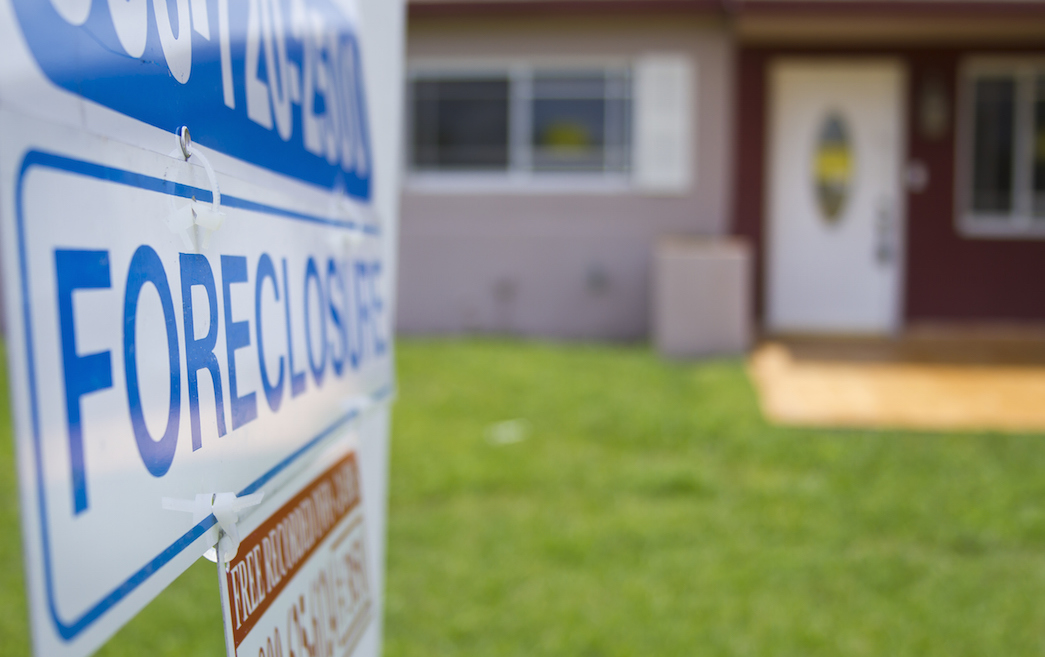Your Guide to Buying a Foreclosed Home
Thinking about buying a foreclosed home? It might not necessarily be the bargain you were looking for.
While a home in foreclosure is typically priced lower than other properties in a neighborhood, there are some unique obstacles associated with the purchasing process.
To give you an idea of what to expect when buying a foreclosed home, I put together this guide featuring a few helpful tips.
How to Find A Foreclosed Home
You may have come across a solicitation where, for a certain amount of money, you can obtain or subscribe to an “insider list” of foreclosed homes. But, it just doesn’t work that way. There’s no secret list of foreclosed homes. In fact, it’s quite the opposite.
When a bank wants to sell a home they’ve taken in foreclosure, they want as much market exposure as possible and will list it on local MLS and realtor boards to get it off their hands as quickly as they can. Therefore, you can find any and all foreclosed homes simply by working with a realtor or doing your own research online.
Unknown Timeline to Close
When a property is foreclosed on, there is a lot of activity in regard to title transfers. When selling a foreclosed home, the bank is obligated to give the purchaser clear title. In other words, when the buyer gets the title, it must be clear of baggage such as back taxes, leans, litigation, etc.
But when the bank acquires a home, they don’t always know about the skeletons in the closet. So, when an offer is made, the bank may need an extended and unknown period of time to clear the title so they’re not opened up to future litigation themselves. This unpredictable timeline can create headaches for buyers who have a time constraint for closing.
Additionally, when you submit an offer to a bank, it has to be approved by someone with the ability to accept it; typically, a person of authority. Since these people are often busy with other things, it could take measurably longer to know whether or not your offer is accepted, which can further delay the process.
Additional Pre-Approval Steps
Bank sellers will not entertain an offer unless the purchaser has a valid pre-approval. And while getting a pre-approval for a foreclosed home requires the same documents as any other home purchase, there’s one caveat that may lengthen the process.
In many cases, the bank will require that the pre-approval come from them. For example, if you’re looking to buy a foreclosed home from Bank of America, they might only accept a Bank of America loan pre-approval.
However, compliance rules dictate that a seller can’t tell a buyer to obtain financing from a certain entity. Even if Bank of America requires that you go through them for the pre-approval, you can get your actual loan through any local lender of your choice.
Little Room for Negotiation
Buying a foreclosed home is tied to the bank’s urgency on offloading the property and their dependence on the home’s worth in the market. They expect to sell by a certain date and net a certain amount of money on the sale.
While a foreclosed property could start at a deeper discount than surrounding properties, it’s not typical that you’ll see the home be dramatically reduced in price simply because it’s foreclosed. If a value opportunity occurs, it could be because the home is in less-than-pristine condition.
Lack of Personalization
If you’re buying a home from a private owner, it’s more than just a piece of real estate. It’s a roof over their head and could have been a family home for many years, with many memories attached to it. These factors make an impact on offer evaluation.
In contrast, when a bank is evaluating offers on a foreclosed home, it’s an unemotional decision-making process. Questions like, “How do I winterize the sprinklers?”, “When is trash day?” or “What is the garage door code?” will be completely unknown to a bank.
The buyer will have to do a lot more leg work than normal to find the answers they’re looking for, and not expect to immediately learn about the tiny touches that make a foreclosed home unique.
Due Diligence Required
A foreclosure doesn’t happen overnight. The prior owner may have undergone financial stresses over many years leading up to the foreclosure, which means there is high chance that several areas of the property have not been maintained.
If a foreclosed home can’t be financed due to its condition, the bank will have to disproportionately discount the property. So, it may make sense for the bank to spend $3,000 to install a new furnace than sell the home at a $10,000 discount.
But, the bank seller will only get the property up to the minimum standards of being financeable. Where you might be able to negotiate with a private seller to make repairs after inspection, the bank will sell a foreclosed home in as-is condition. Therefore, it’s critical that you get a quality home inspection prior to purchase and prepare for substantial updates.
Additionally, where a purchaser would typically use a realtor’s purchase agreement to make an offer on a privately-owned property, a foreclosed homebuyer may have to use the bank’s contract documents. Predictably, the language in these documents will lean more favorably toward the bank, including, for example, language that allows them to call off the deal for any reason they deem appropriate. If there’s ever a time to have an attorney review a purchase agreement, the purchase of a foreclosed property would certainly warrant it.
A good lender like Ross Mortgage will walk foreclosed homebuyers through these steps and thoroughly communicate what to expect before purchase. To speak with one of our professionals, send us a message or give us a call at 800.521.5362.










